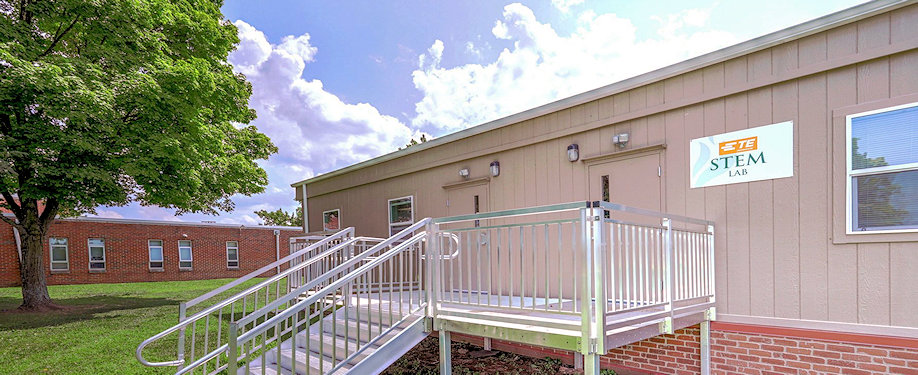Modular Classrooms & School Buildings Lewiston, ME

Modular classrooms and school buildings in Lewiston, ME, offer durability and cost-effectiveness. But other modular structures on campuses, such as cafeterias, provide these and other benefits. The experts with Modular Genius would like to share some information on how modular school cafeterias are driving positive changes in school food programs and encouraging students to make healthier food choices.
A Wealth of Benefits
Modular school cafeterias are revolutionizing how students access and consume meals, which is vital in promoting healthy eating habits and overall well-being. These innovative dining facilities offer numerous advantages, including flexibility, efficiency, and sustainability, which create environments conducive to fostering nutritious eating behaviors. The following is a closer look at these advantages.
Flexible Layout and Design
Modular school cafeterias are designed with flexibility, allowing for customizable layouts that can adapt to the unique needs and preferences of different schools and student populations. From open-concept dining areas to versatile serving stations and food kiosks, modular design enables schools to create dynamic, inviting spaces that encourage social interaction and engagement during meal times.
By providing a welcoming environment that promotes positive social experiences, modular cafeterias can help students develop healthy eating habits and foster a sense of community around food.
Emphasis on Fresh and Nutritious Options
One of the key objectives of modular school cafeterias is to prioritize fresh, nutritious, and locally sourced food options. Unlike traditional school cafeterias that may rely heavily on prepackaged or processed foods, modular cafeterias often feature onsite kitchens and cooking facilities that enable the preparation of fresh meals using whole ingredients. By offering a diverse menu of fruits, vegetables, whole grains, and lean proteins, modular cafeterias make it easier for students to make healthier food choices and develop lifelong habits that support their overall health and well-being.
Integration of Food Education and Wellness Programs
Modular school cafeterias are more than dining spaces; they also serve as hubs for food education and wellness programs aimed at promoting healthy eating habits and nutrition literacy among students. These programs may include cooking demonstrations, nutrition workshops, and gardening initiatives that provide hands-on learning opportunities and foster a deeper understanding of where food comes from and how it impacts health. Modular schools can create a holistic approach to promoting healthy eating habits that extends beyond the lunch line by integrating food education and wellness initiatives into the cafeteria environment.
Efficient and Sustainable Operations
Finally, modular school cafeterias are designed to operate efficiently and sustainably, minimizing waste and environmental impact while maximizing resource utilization and energy efficiency. Sustainable design features such as energy-efficient lighting, water-saving fixtures, and composting programs help reduce operational costs and minimize the cafeteria’s carbon footprint. Additionally, modular construction techniques allow for using eco-friendly materials and building practices that prioritize environmental stewardship and promote a culture of sustainability within the school community.
The demand for nutritious and sustainable food options continues to grow. Modular school cafeterias offer a promising solution to promote health and wellness in schools and communities nationwide.
The experts in modular classrooms and school buildings in Lewiston, ME, with Modular Genius, are ready to tell you more. You can reach us by calling 888-420-1113 or using our convenient online form.